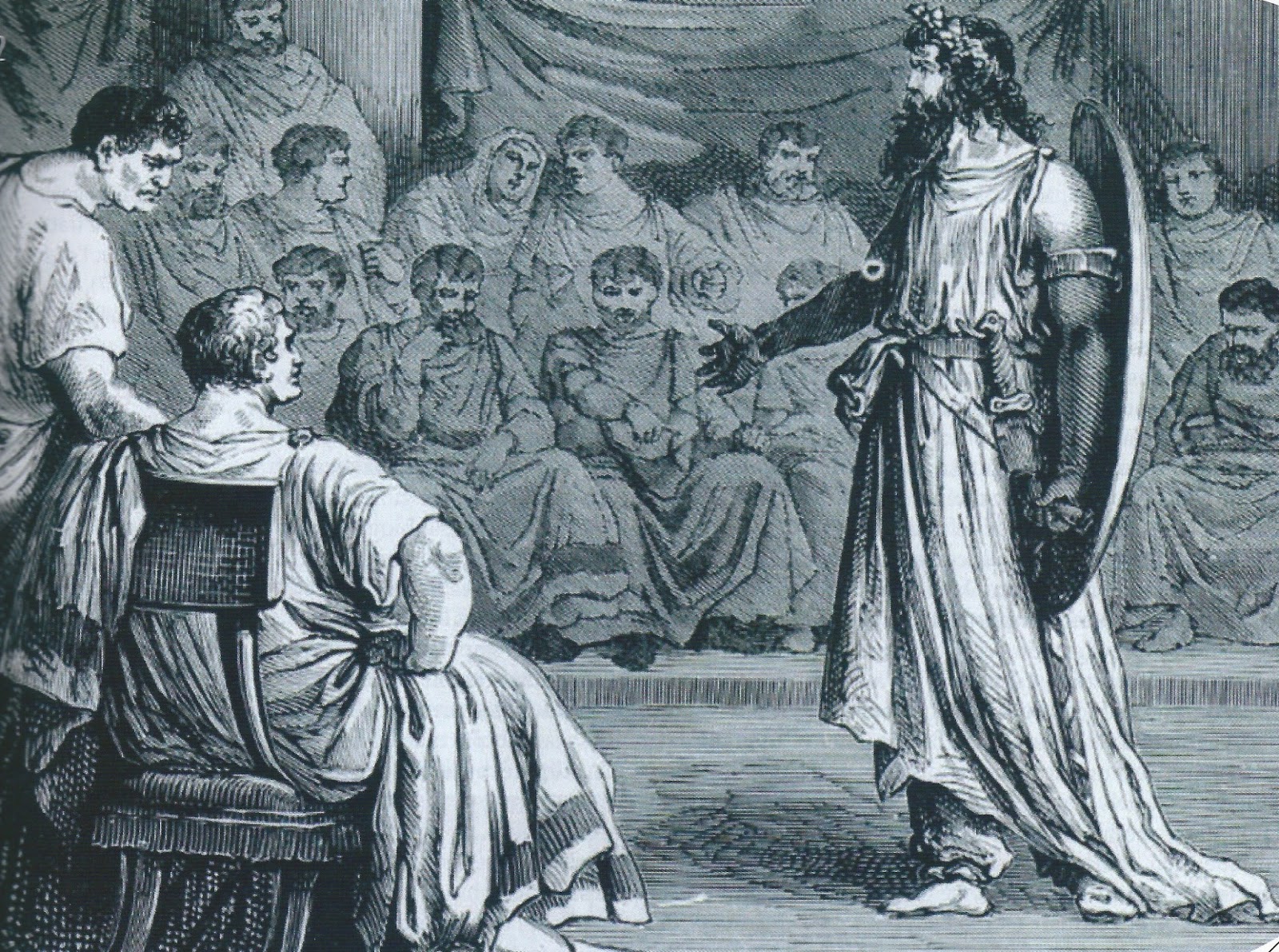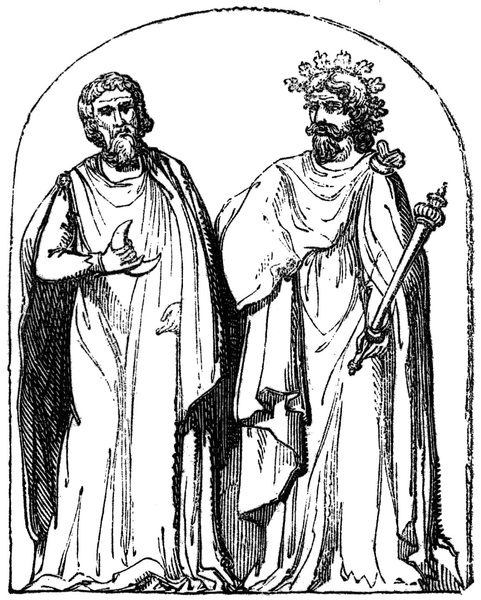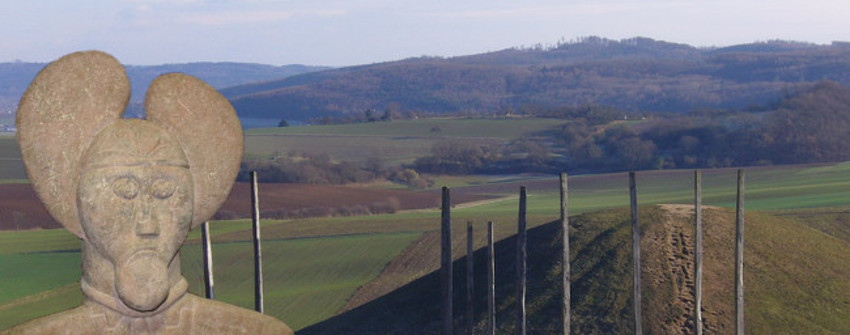Etymology
The meaning of the word is still debated. It was passed down to us in its Latin form, druidae (Cicéron) and by the Welsh derwydd and the Irish druid
Experts are in agreement that the root *wid, “to know, to see” which also signifies “wood” can be recognised in the second term whereas they cannot agree on the first term: an intensive Indo-European prefix *dru, “hard, strong” which has two common meanings; either “very wise” or * der-w/dr-ew, “firm, solid.”
Origins

Certain experts, basing their facts on Julius Caesar words: “we believe that their doctrine was founded in Britain and was brought here from this island to Gaul…” have suggested that druidism has a pre-Celtic origin, whereas others believe that druidism is only proven to have been in Gaul (Jean-Louis Brunaux). We can however draw links between this institution and Brahmanism (see also the flamines in Rome). Druidism consequently could have an Indo-European origin, without forgetting that it could possibly have also integrated regional attributes deriving from Atlantic civilisations.
Status
Druids held the position of magical and judicial sovereignty, the first of three positions in an Indo-European society (the two others being the position of the warrior and that of the producer).
The Druids constituted a real professional class and were exempted from military service as well as being excused from all chores.
Under the authority of an elected chief, they would meet once a year in the forest of the Carnutes to discuss important issues and resolve any disagreements between their people.
Women could also hold this position, for instance the Gallisenae from the Ile de Sein.
Duties
Druids were not merely priests but also held multiple roles.
- Political leaders:
- Certain amongst them were both political leaders and druids.
- Priests:
- They led religious cults (which entailed the practice of divination, prophecies and sacrifices, of which some were perhaps human sacrifices).
- Judges:
- They played the role of mediators between humans and acted like real judges.
- Teachers:
- The apprenticeship of future Druids lasted twenty years and was only conducted orally since the religion prohibited them from giving their lessons in writing. They also taught rudimentary knowledge to children of the aristocracy.
- Scientists:
- They gave priority to the study of Astronomy, inseparable from religion, and Mathematics and Botany.
- Philosophers:
- They believed that souls did not die and in the event of death, would pass from one body on to another.
- Doctor-healers:
- Medicine in this period was an almagation of an understanding of plants and ritual magic. The most famous is the picking of mistletoe.

Evolution and Disappearance
The druids of Gaul and subsequently of Britain were persecuted by the Romans, not because of their religious role but because of their political powers, even though at the time of the Roman conquest, druidism had already lost its influence on society.
Druidism survived in Ireland, which remained outside of the Roman Empire, up until the Christian assimilation at the beginning of the Middle Ages.



